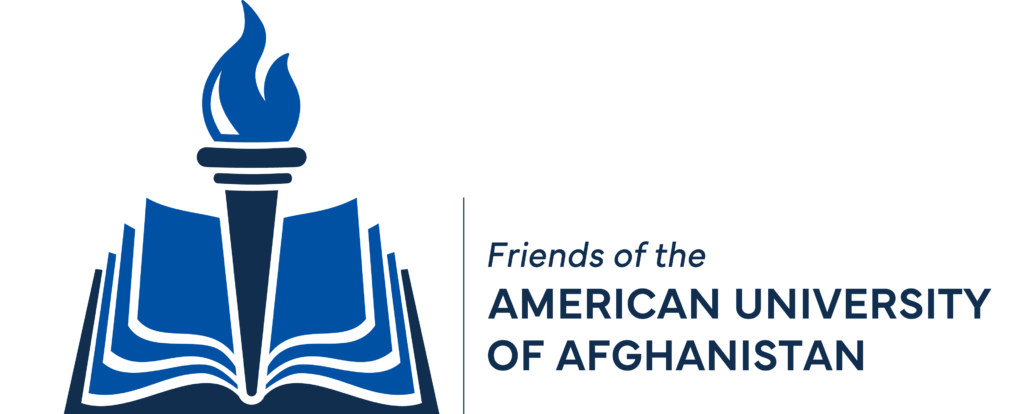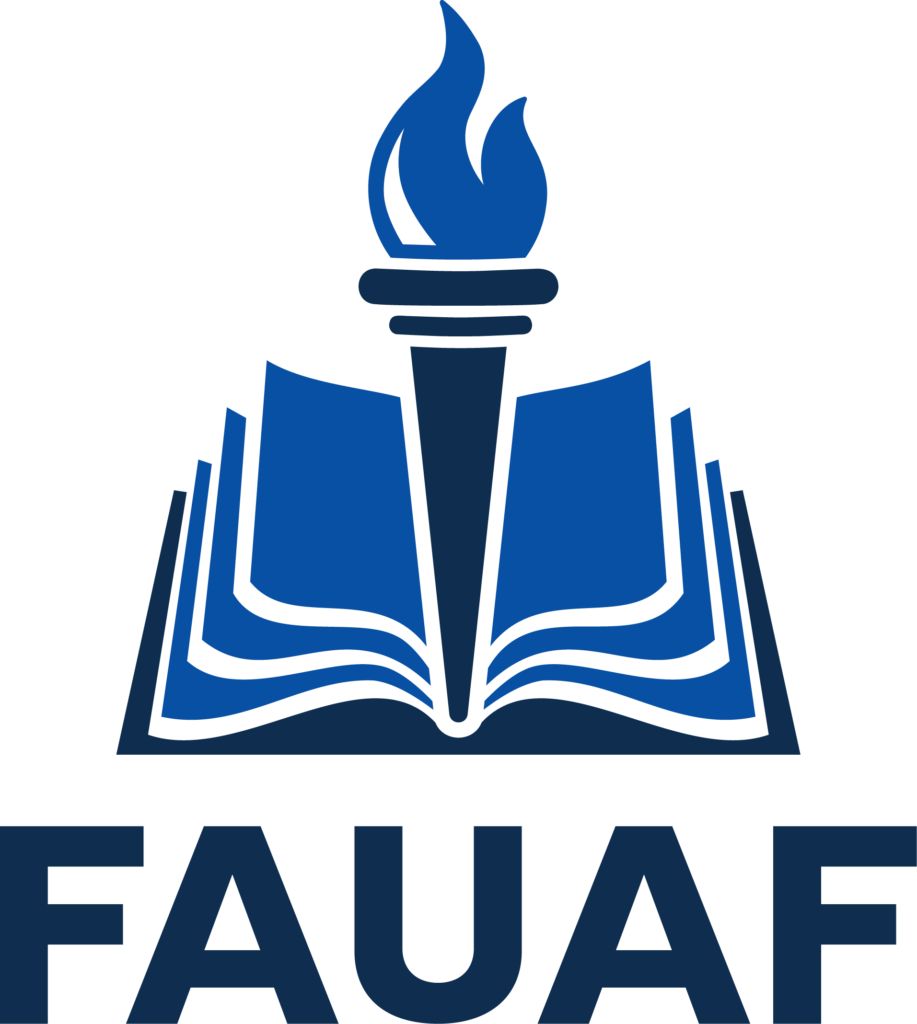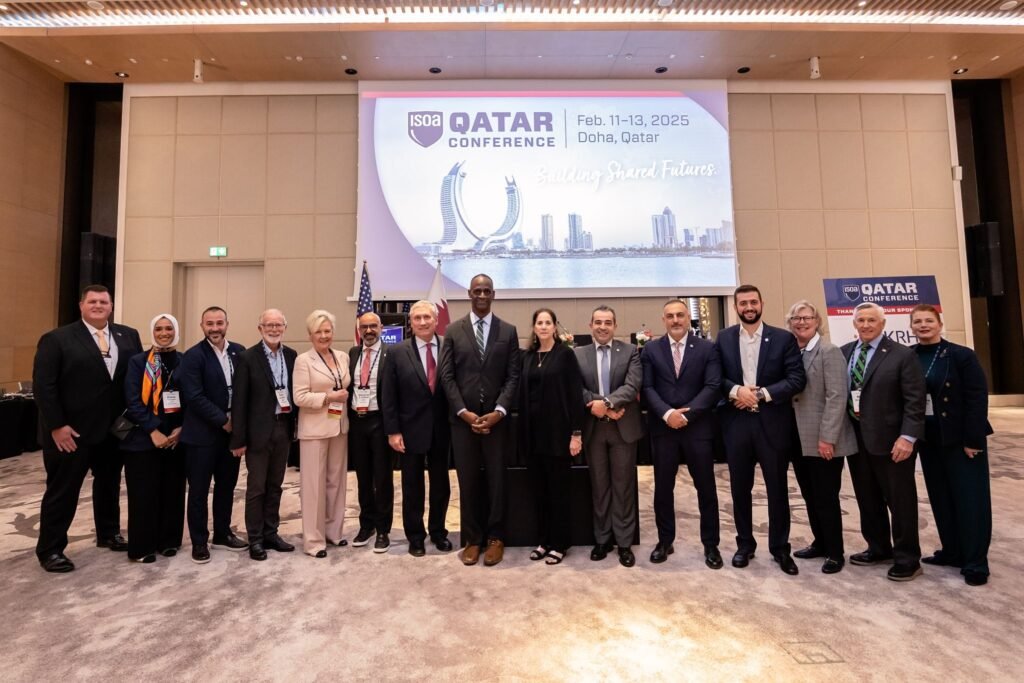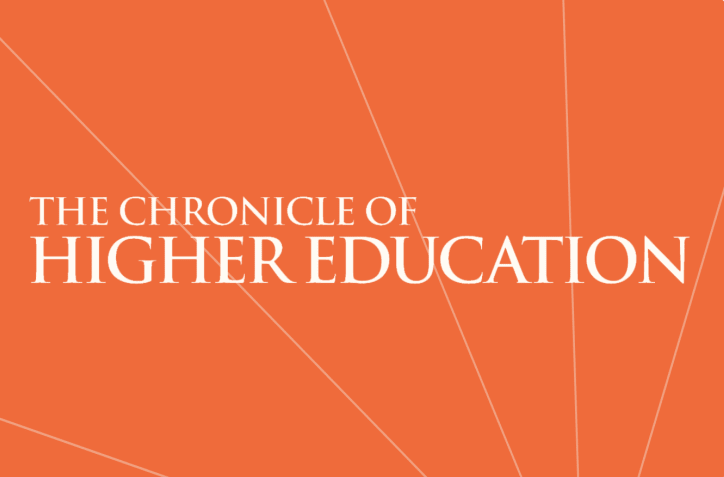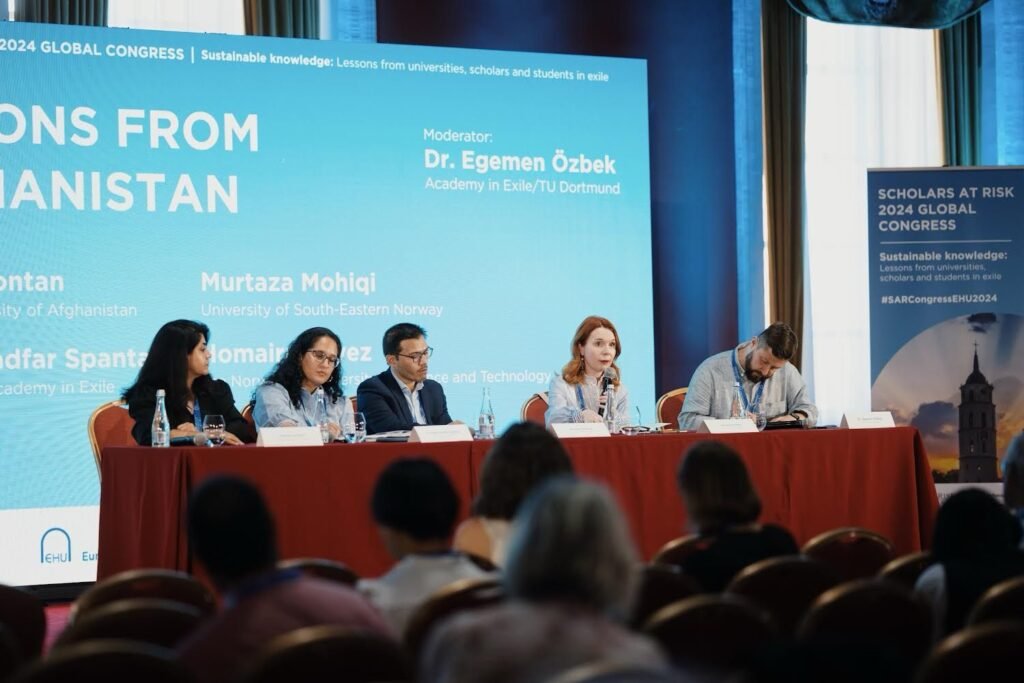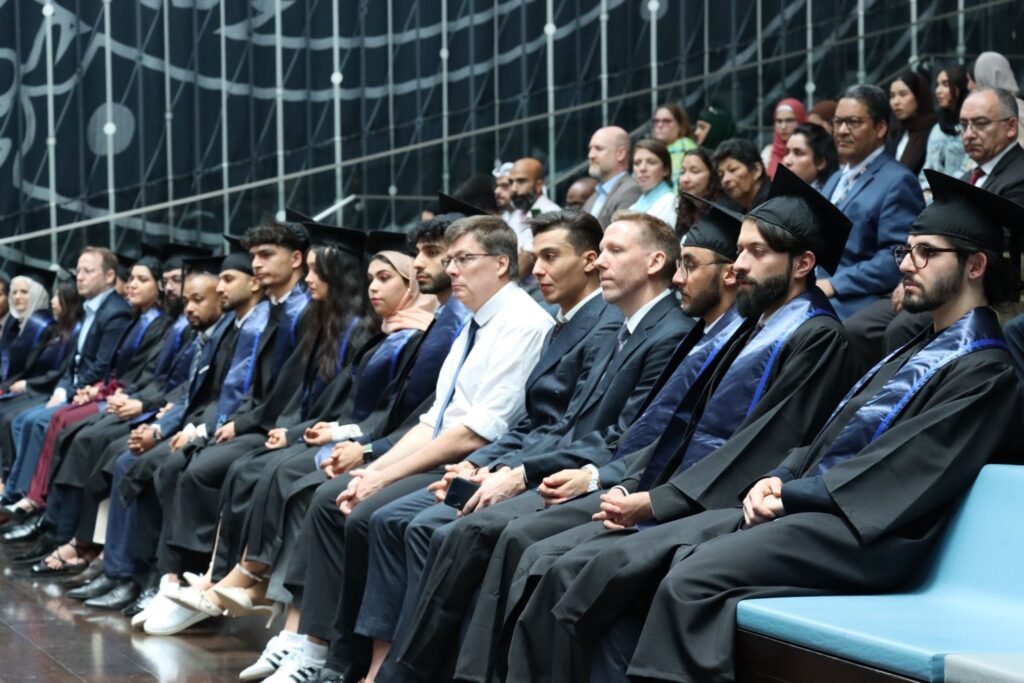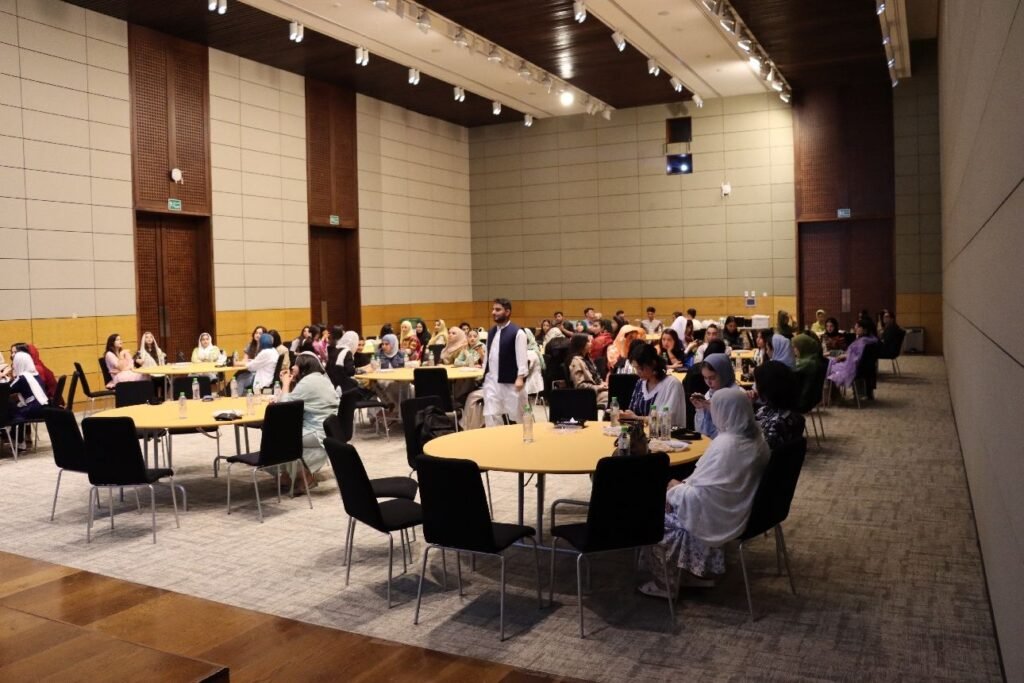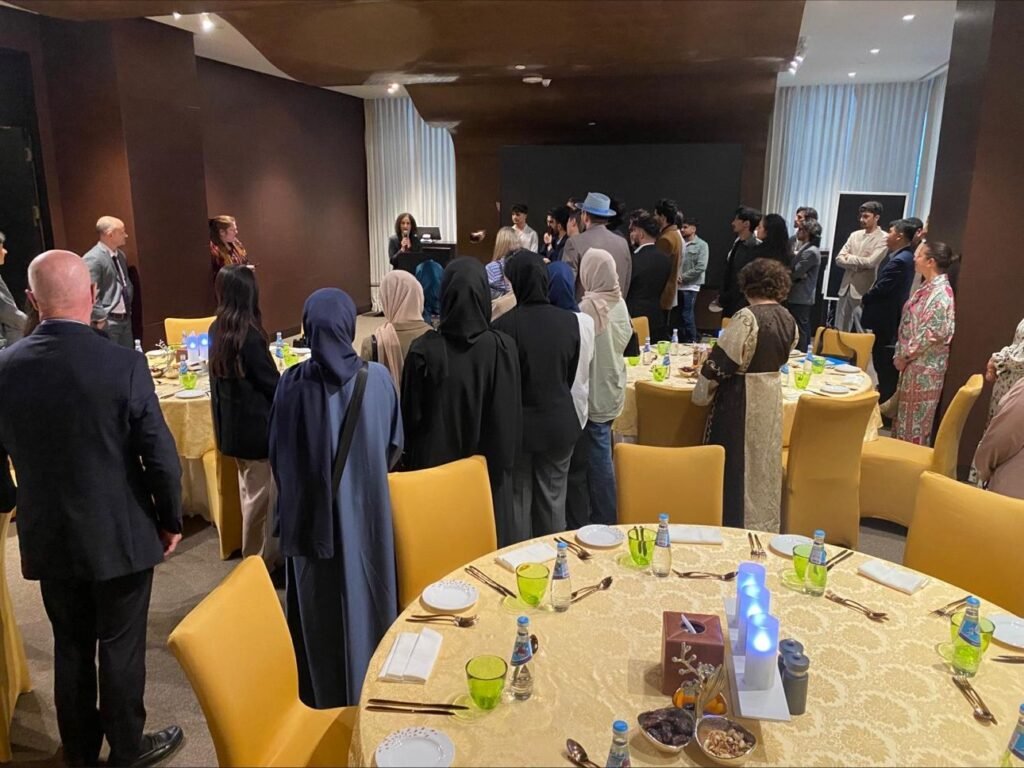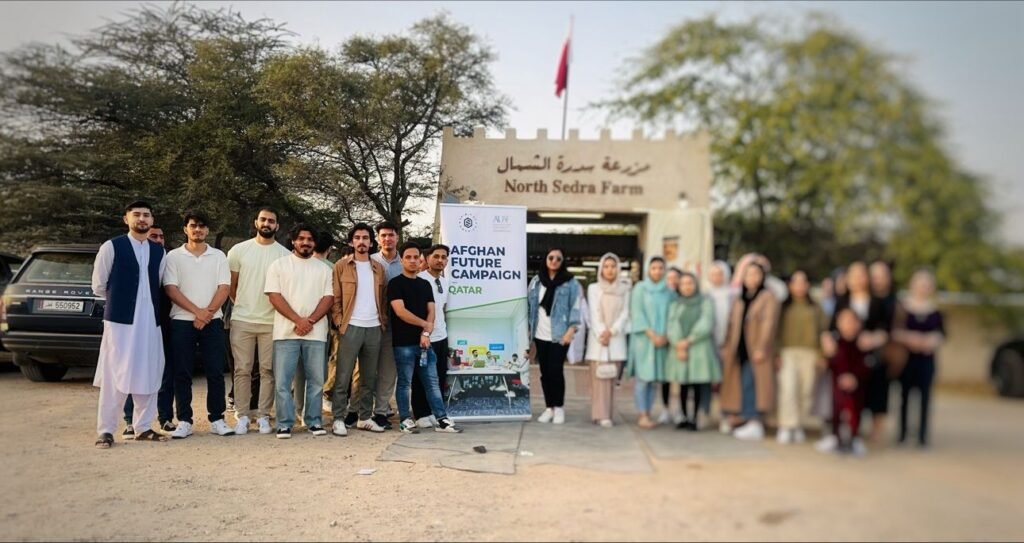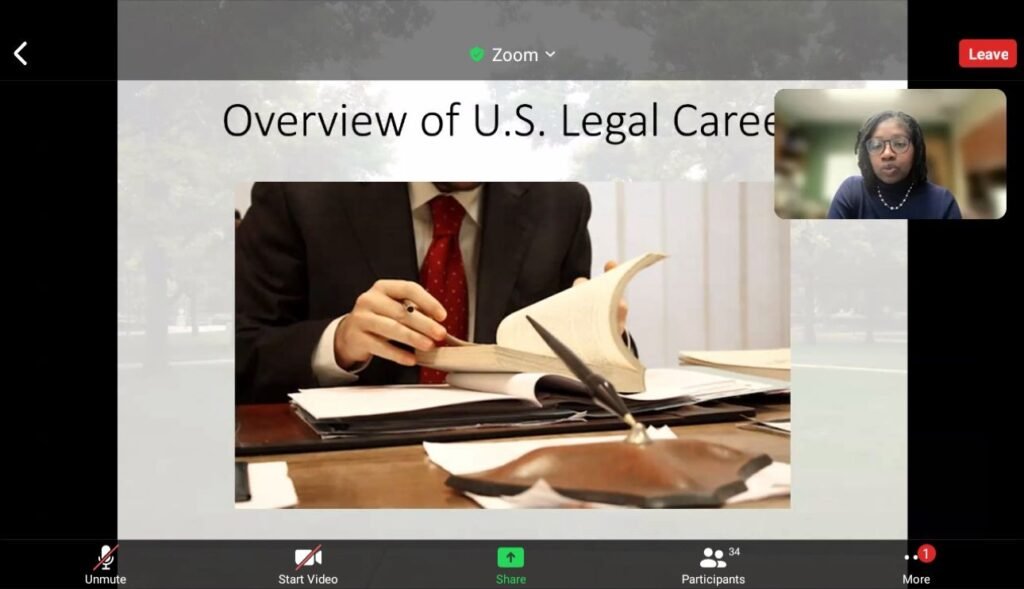As the Taliban advanced into the Afghan capital of Kabul, the last remaining administrators at the American University of Afghanistan destroyed the computer servers, fearful that student and staff records could fall into the wrong hands.
With the conservative Islamic group — which opposes education, especially of women and girls — in power again, the liberal-arts college, known as AUAF, became a university in exile.
But three years after the Taliban seized control of the Afghan government, on August 15, 2021, AUAF is, perhaps improbably, thriving. It now enrolls 1,100 students, the most since it opened, in 2006, online and at an interim campus in the Persian Gulf emirate of Qatar. Nearly 80 percent of the students it educates, in 20 countries, including Afghanistan, are women.
The persistence of the university, which was started by the U.S. and Afghan governments, is a testament to the power of education in the face of adversity and oppression, said Ian Bickford, AUAF’s president. “For our students, education is their lifeline.”
From the outset, amid American forces’ chaotic withdrawal, AUAF’s leaders were determined to keep the institution going — even if its physical campus was in Taliban hands. Within two weeks, the fall semester began, online and on time.
It was not an easy feat. Because the servers had been smashed, the college had no student files or class rolls, said Victoria Fontan, the provost. Officials had to recreate records, relying on professors to manually register their students in a spreadsheet.
Spread around the world, faculty members kept Kabul hours, teaching remotely from places like Oregon and Australia. Many students and local staffers remained in Afghanistan, unable to evacuate after the American pullout. Eventually, students were able to find passage out of the country in smaller groups, taken in by Qatar, the American University of Iraq Sulaimani, the American University of Central Asia, in Kyrgyzstan, and Bard College, the New York liberal-arts institution where Bickford previously taught.
Still, most students are online. At the time of the Taliban takeover, instruction at AUAF was remote because of the pandemic, a rarity in Afghanistan where nearly all schools and colleges had quickly resumed in-person instruction, Fontan said. Covid gave them a head-start in dealing with challenges such as poor internet connectivity and household demands on female students living at home.
AUAF also held classes online for seven months following a 2016 attack by militants that killed 13 students and employees.
And Bickford had the fortune — or misfortune — of being experienced at re-establishing learning at institutions that had been forced out of or expelled from their original homes. Bard helped Central European University move from Budapest to Vienna because of political pressure from Hungary’s nationalist government. Bickford was part of a group that set up a new university in Myanmar, which was then closed by a military coup.
A hunger for learning
Bickford went to Afghanistan in a deteriorating security situation in March 2021, knowing that AUAF might have to relocate. He immediately began talking with Qatar about the possibility of setting up a temporary campus in Education City, its foreign-college hub. “I had something of a tactile memory of the steps you might need to take if a university needs to go into exile,” he said.
Working with students who had experienced a shared trauma was especially difficult. For the first weeks after the Taliban takeover, students met in small faculty-led groups organized by major, talking about the events in the context of their fields of study. Fontan and her colleagues studied trauma-informed pedagogy in order to rethink instruction and provide training to the college’s 30 full-time faculty members and 75 adjunct professors. Institutions that had been through school shootings offered a guide, she said.
AUAF’s academic changes have been even more extensive. The college — which lost its Afghan accreditation when the Taliban took control and offers a dual degree with Bard — has restructured its graduate and undergraduate majors, overhauled general education, and innovated in online learning. “We are reinventing ourselves,” Fontan said.
Students can also study through the Open Society University Network, a consortium of colleges that offers shared online courses worldwide.
Both Fontan and Bickford said there was never any question about keeping AUAF going. Liberal-arts education is particularly important in authoritarian societies because it encourages agency and critical and independent thinking, Bickford said. “That’s not something that comes out of the blue. It comes out of learning.”
Despite the obstacles, young Afghans want education, and AUAF’s enrollment has increased. Last year the university started a transition program to help students prepare for college. In two days, it got 10,000 applications for just 350 spots. This year the program, which is also offered online, will expand to 1,000 students.
The college is also part of an alliance of colleges, nonprofit groups, and educational providers that works to expand access to education for Afghan girls and women.
“We owe it to them to be their hope,” Fontan said. “A hunger exists in Afghanistan for learning. And that is not going away.”
Full article
